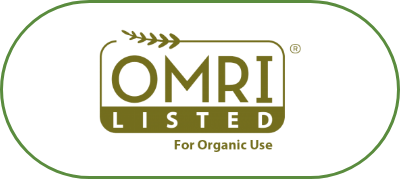Composting is a simple yet powerful way to reduce waste, enrich your soil, and contribute to a healthier planet. By turning organic waste, like food scraps and yard trimmings, into nutrient-rich compost, you can create a natural fertilizer that improves the health of your garden while minimizing the amount of waste that ends up in landfills. At Skagit Soils, we are passionate about sustainability and offer high-quality compost to help you support both your garden and the environment. In this blog post, we’ll explore how composting helps reduce waste, nourish the earth, and promote a sustainable gardening approach.
Reducing Waste Through Composting
One of the most significant environmental benefits of composting is its ability to reduce the amount of organic waste sent to landfills. Organic materials, such as food scraps, grass clippings, and leaves, make up a substantial portion of household waste. When these materials are sent to landfills, they decompose in anaerobic conditions (without oxygen), producing methane—a potent greenhouse gas that contributes to climate change.
Composting provides an alternative by recycling organic waste into valuable compost, which can be used to improve soil health in gardens, lawns, and agricultural fields. By diverting organic waste from landfills, composting reduces the production of methane and lowers your overall carbon footprint.
Improving Soil Health with Compost
Compost is often referred to as “black gold” for gardeners due to its numerous benefits for the soil. When added to your garden, compost helps improve soil structure, enhances water retention, and increases nutrient availability for plants. Here’s how compost works its magic:
- Nutrient Enrichment: Compost is rich in essential nutrients like nitrogen, phosphorus, and potassium, which plants need to grow. Unlike synthetic fertilizers, compost releases these nutrients slowly over time, providing a steady supply of nourishment to your plants without the risk of over-fertilization.
- Soil Structure Improvement: Compost enhances soil structure by increasing its ability to hold water and air. This is particularly beneficial for soils that are too sandy (which drain too quickly) or too clay-like (which can become compacted). The organic matter in compost creates a loose, crumbly texture that allows roots to penetrate the soil more easily.
- Increased Microbial Activity: Compost encourages the growth of beneficial microorganisms that break down organic matter and make nutrients more accessible to plants. These microbes play a crucial role in maintaining soil health and promoting plant growth.
Composting Supports a Sustainable Ecosystem
By composting, you’re not only nourishing your garden but also contributing to a more sustainable ecosystem. Compost helps reduce the need for chemical fertilizers and pesticides, both of which can have negative environmental impacts. Additionally, composting promotes a closed-loop system, where organic waste is recycled back into the soil, reducing the reliance on external resources.
Why Choose Skagit Soils’ Compost?
At Skagit Soils, we create high-quality compost from locally sourced organic materials, ensuring that it’s free from harmful chemicals and contaminants. Our compost is perfect for gardeners looking to improve their soil while practicing environmentally friendly gardening techniques. Whether you’re growing vegetables, flowers, or trees, our compost will help you achieve healthier, more productive plants while reducing your environmental impact.
By composting, you’re not only reducing waste but also nourishing the earth in a sustainable, eco-friendly way. Visit Skagit Soils today to learn more about our compost products and how they can benefit both your garden and the planet!






